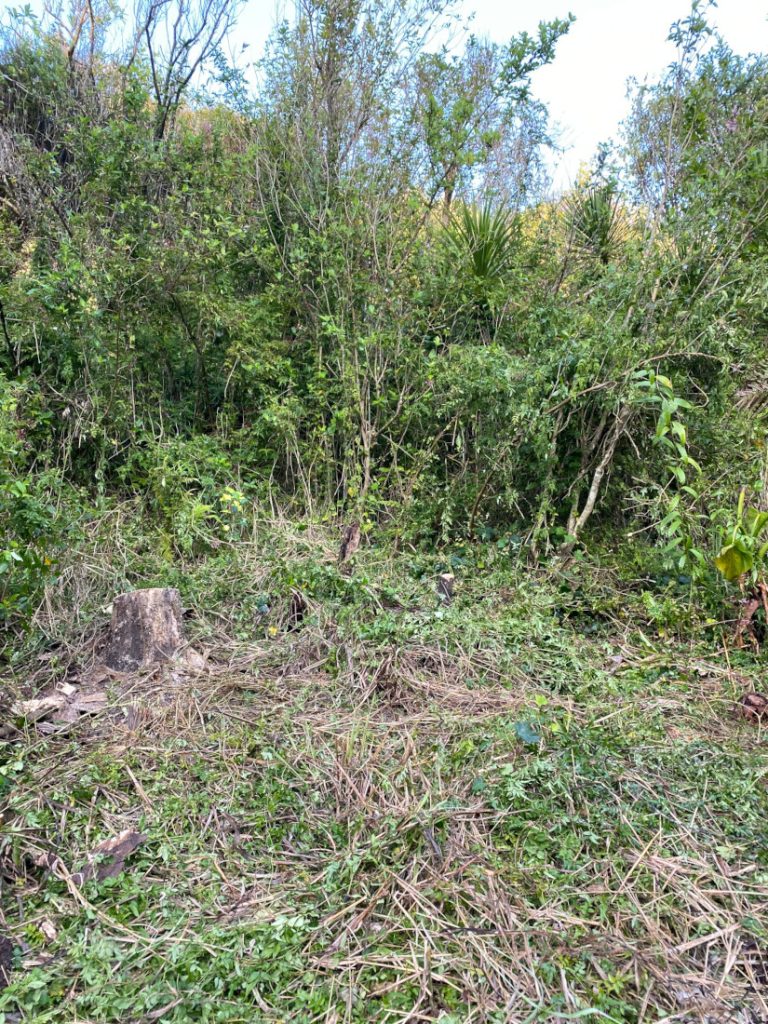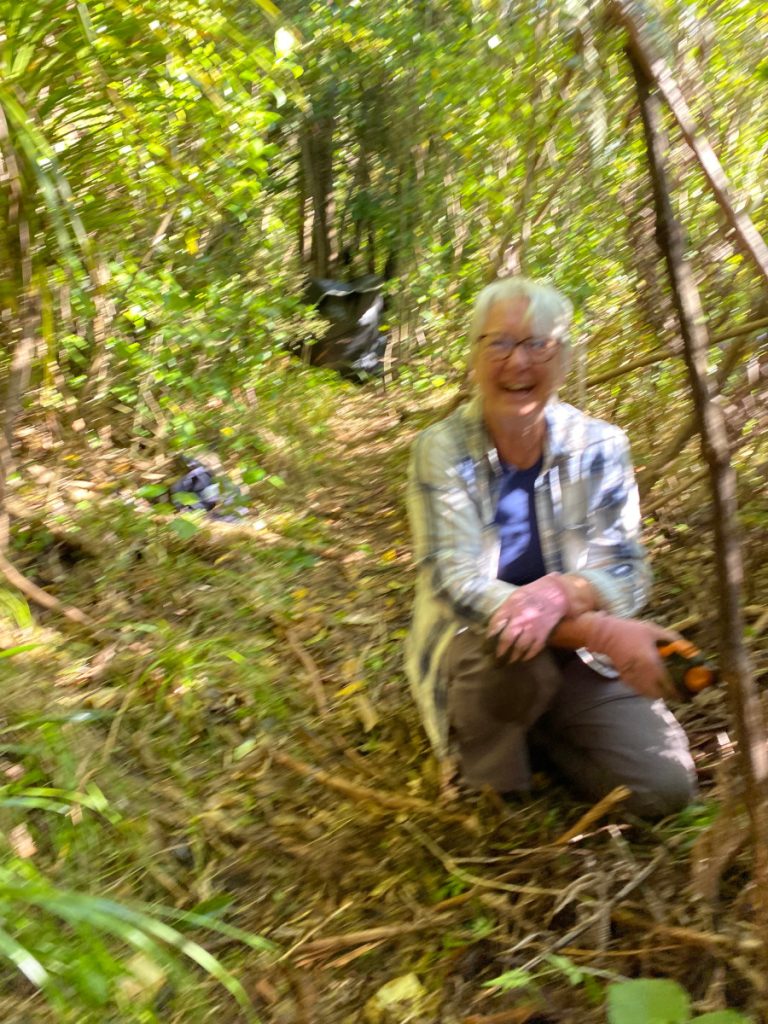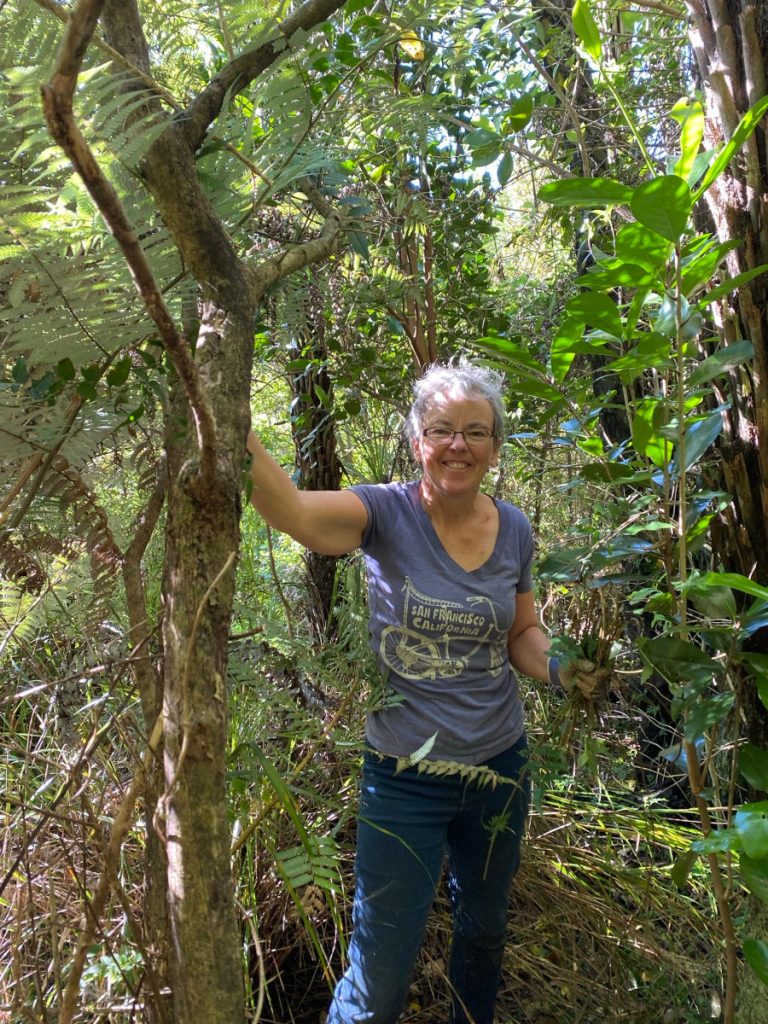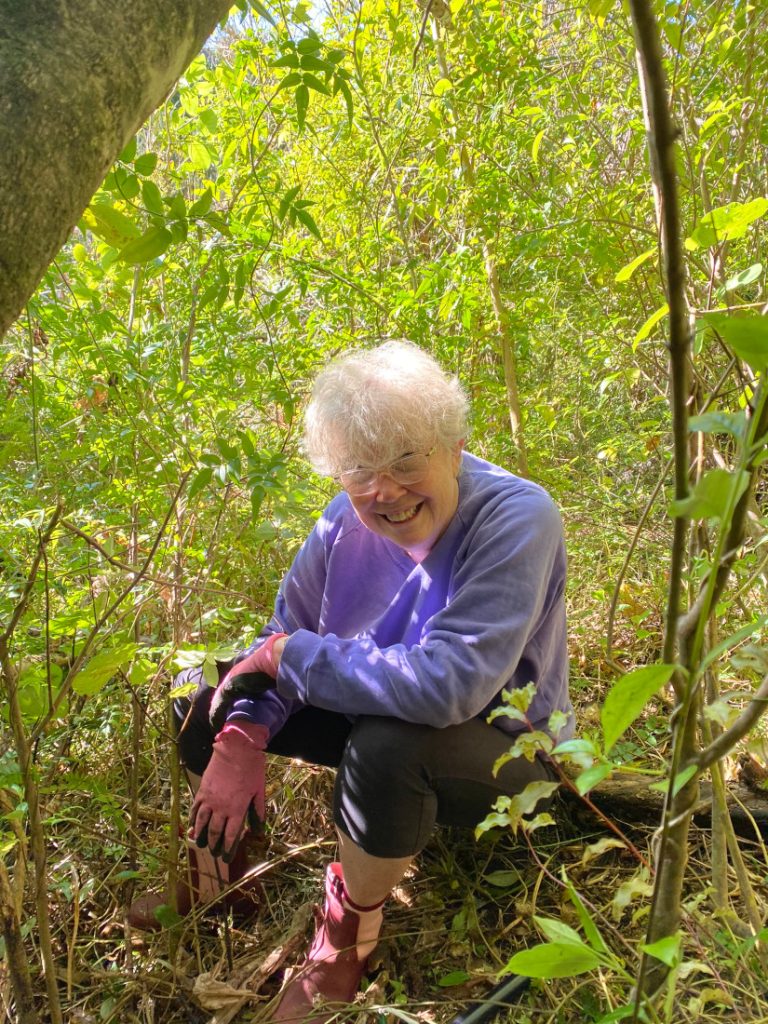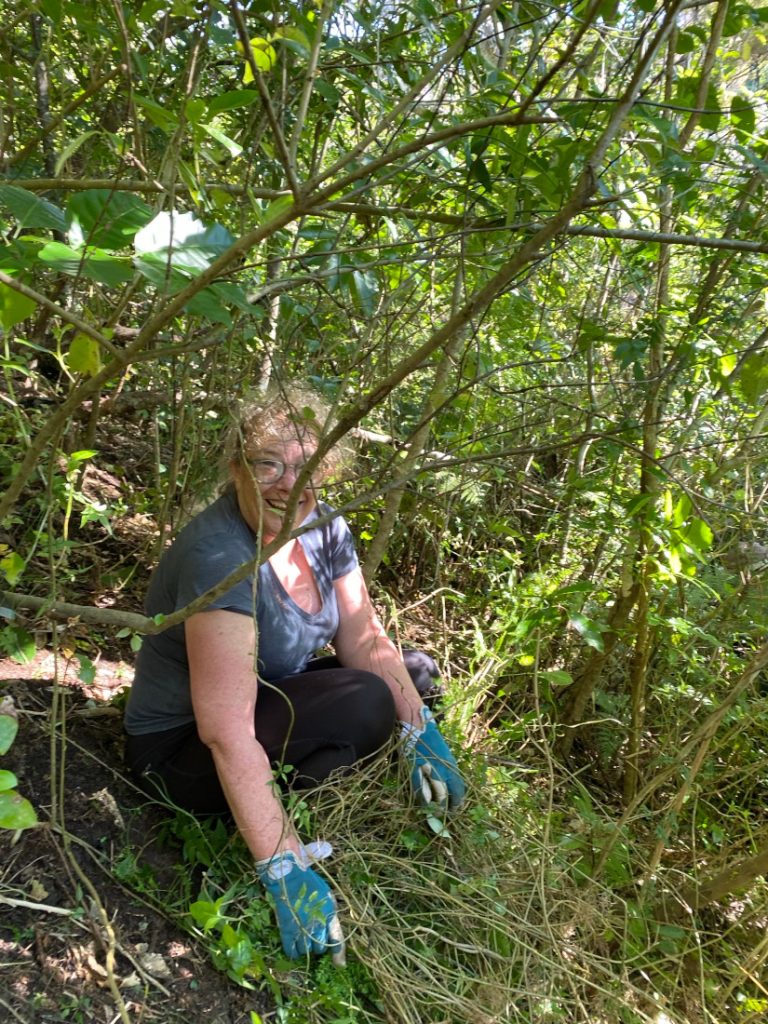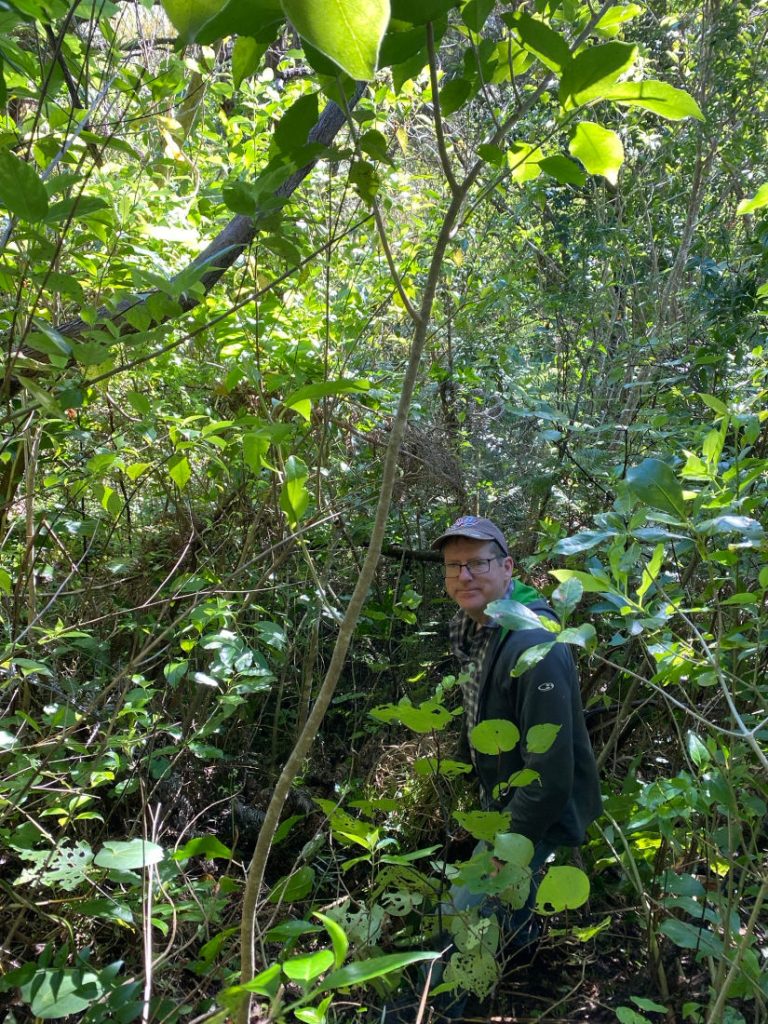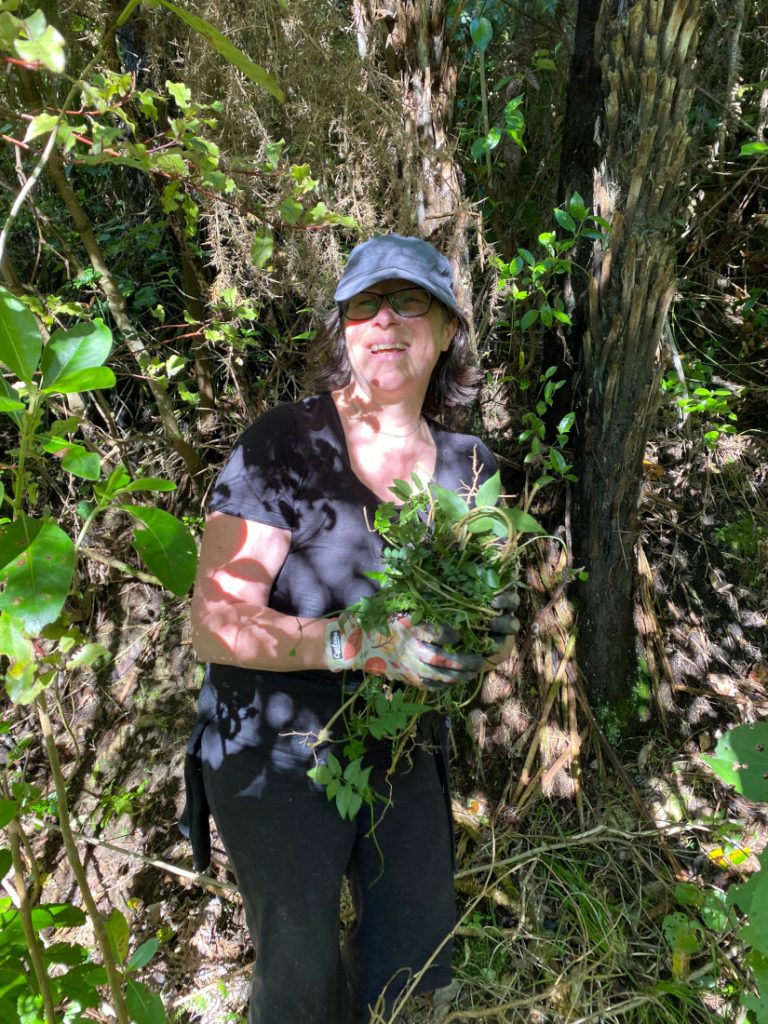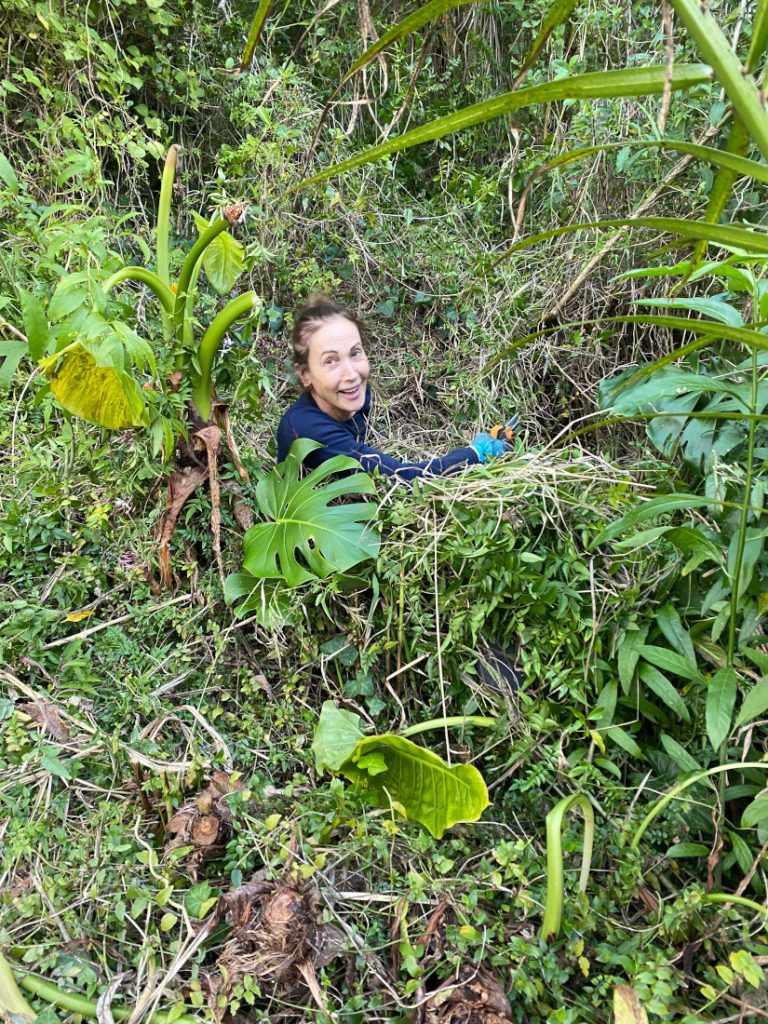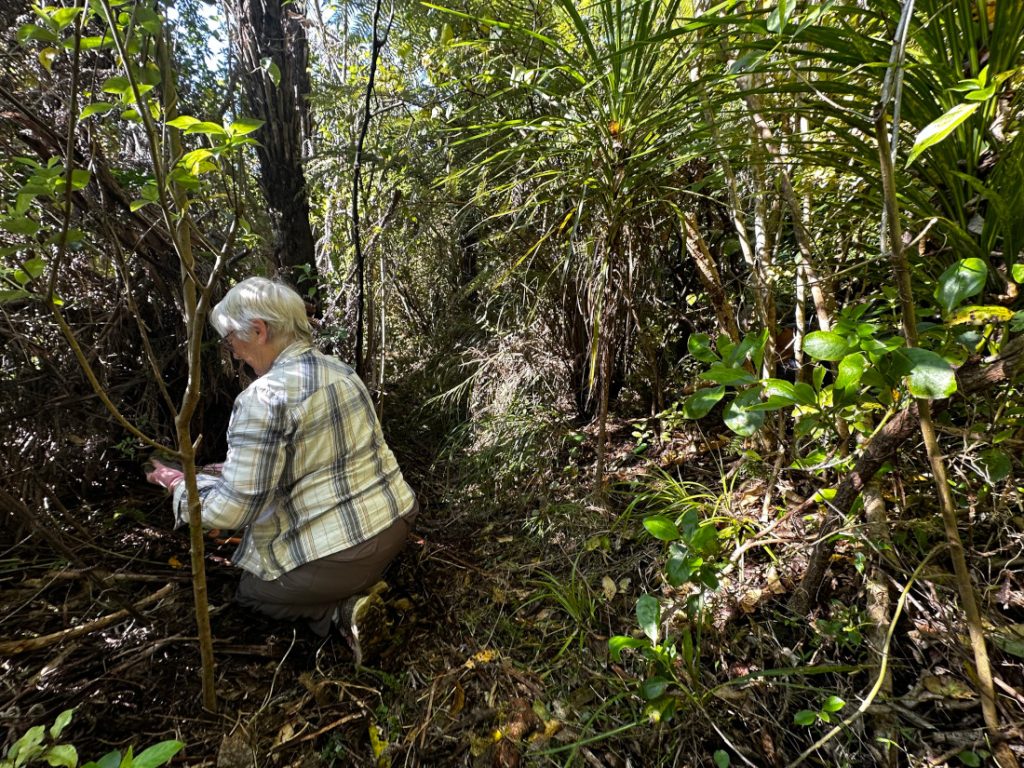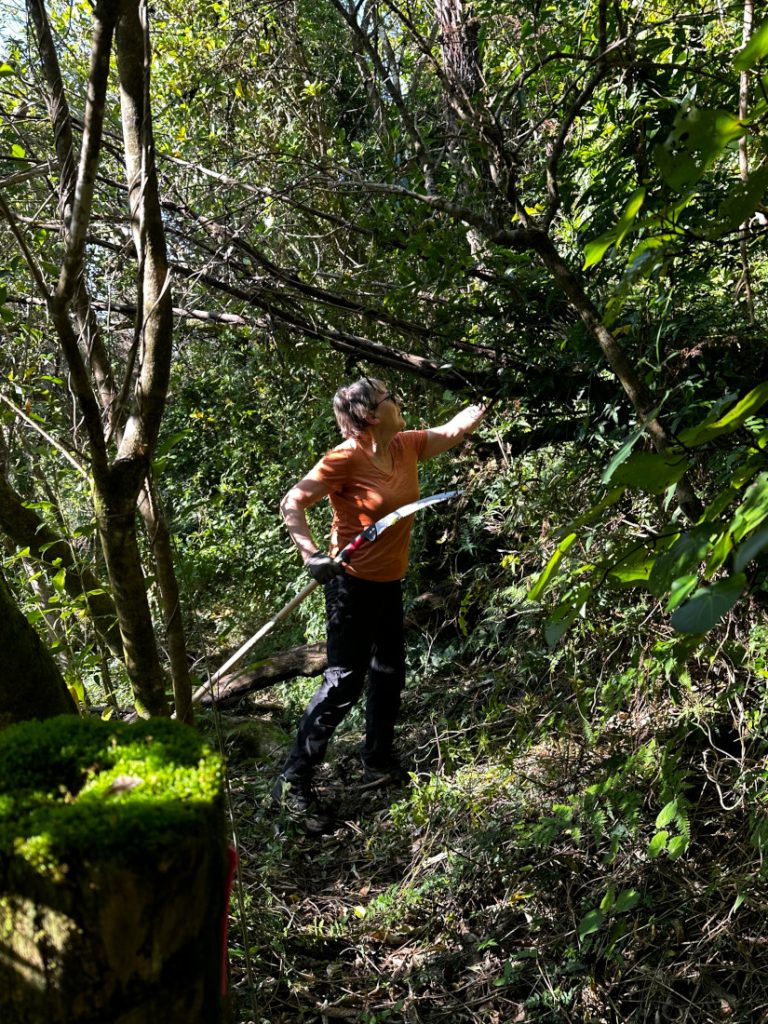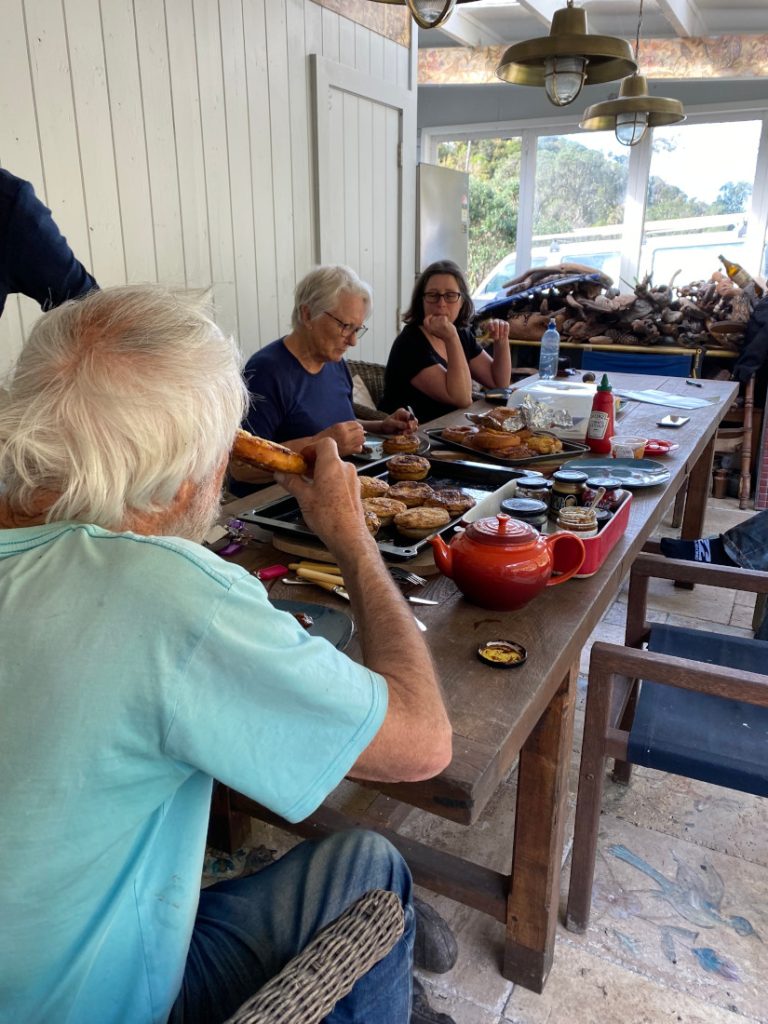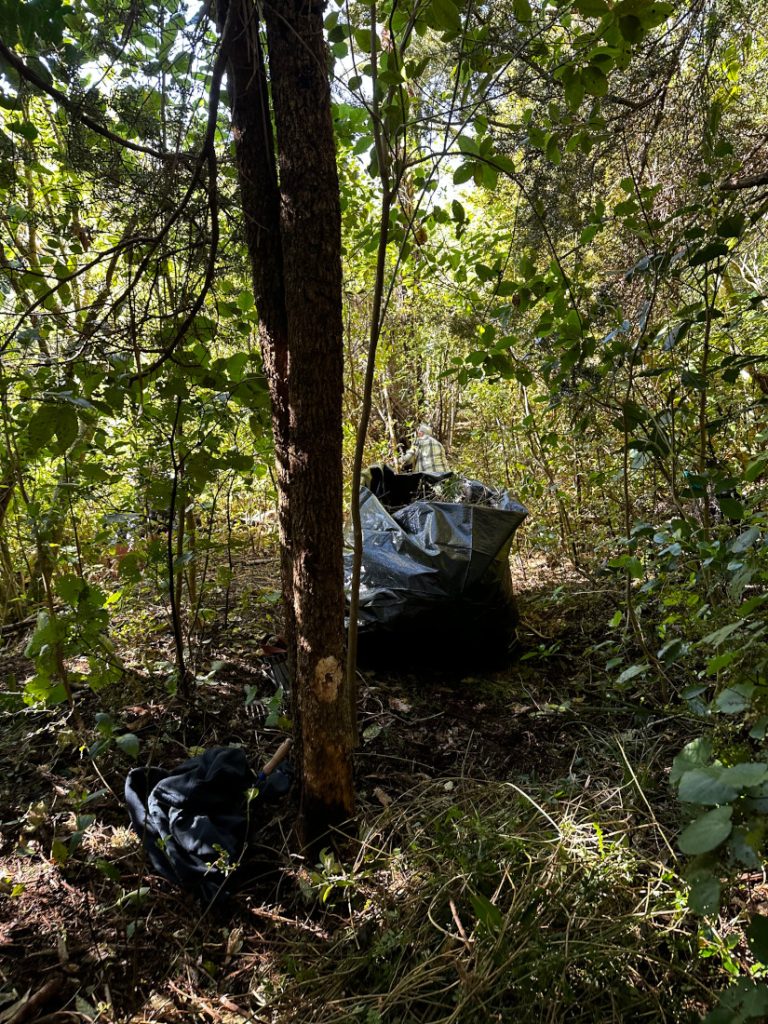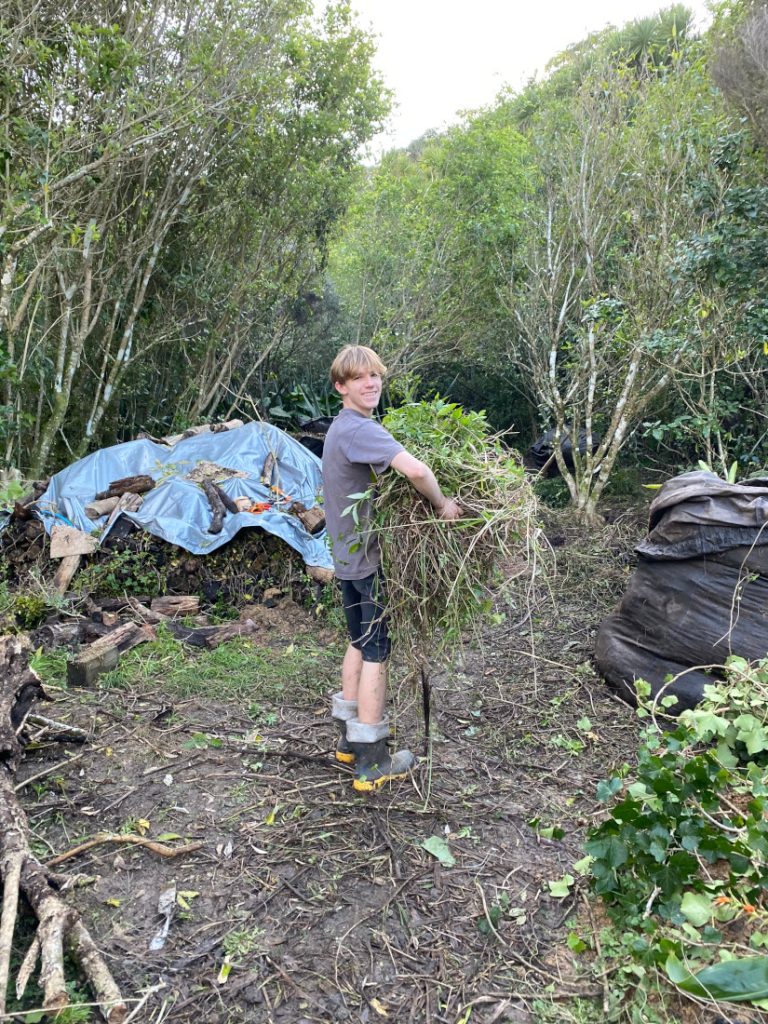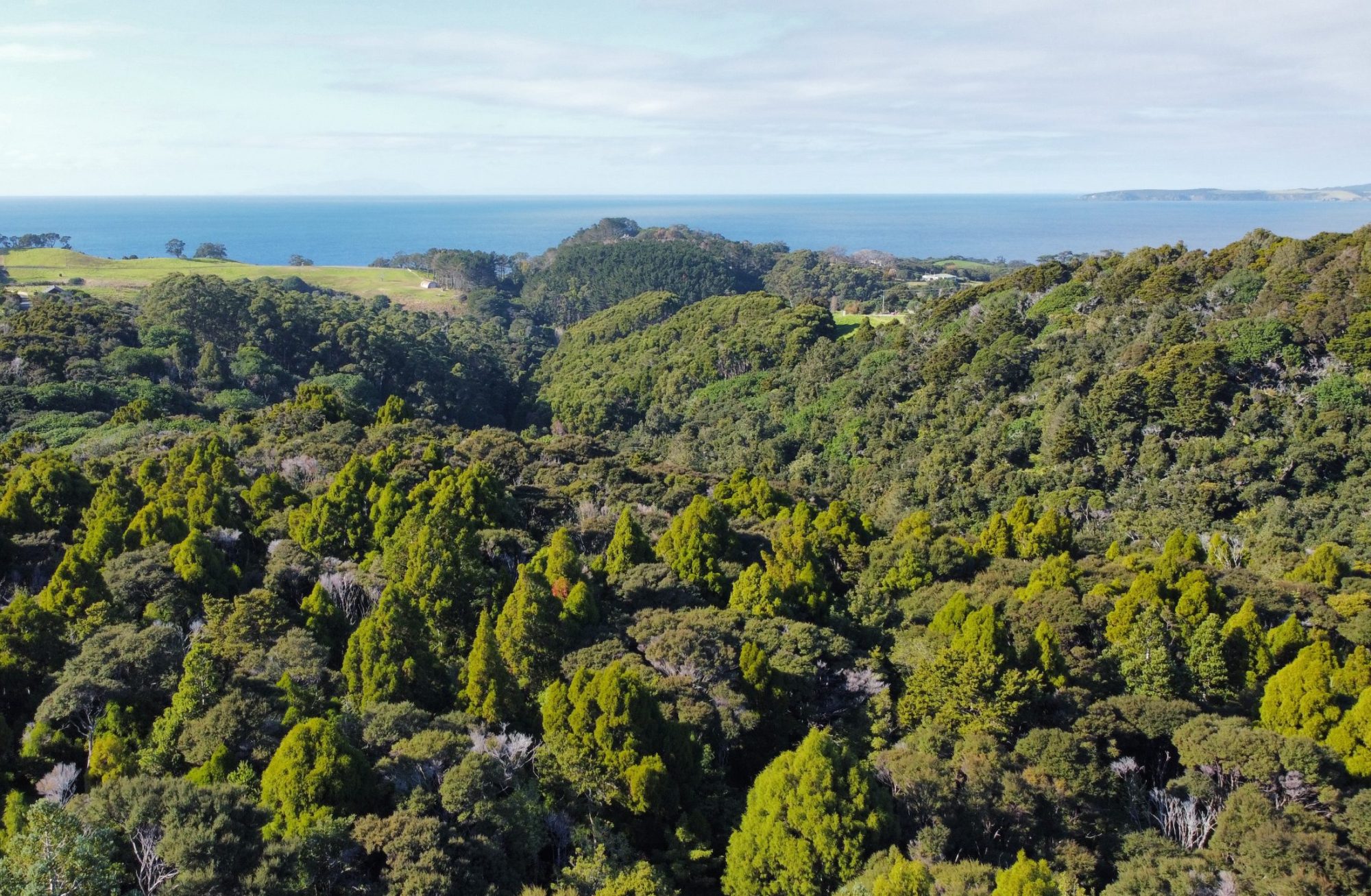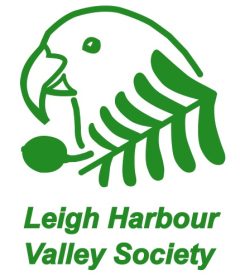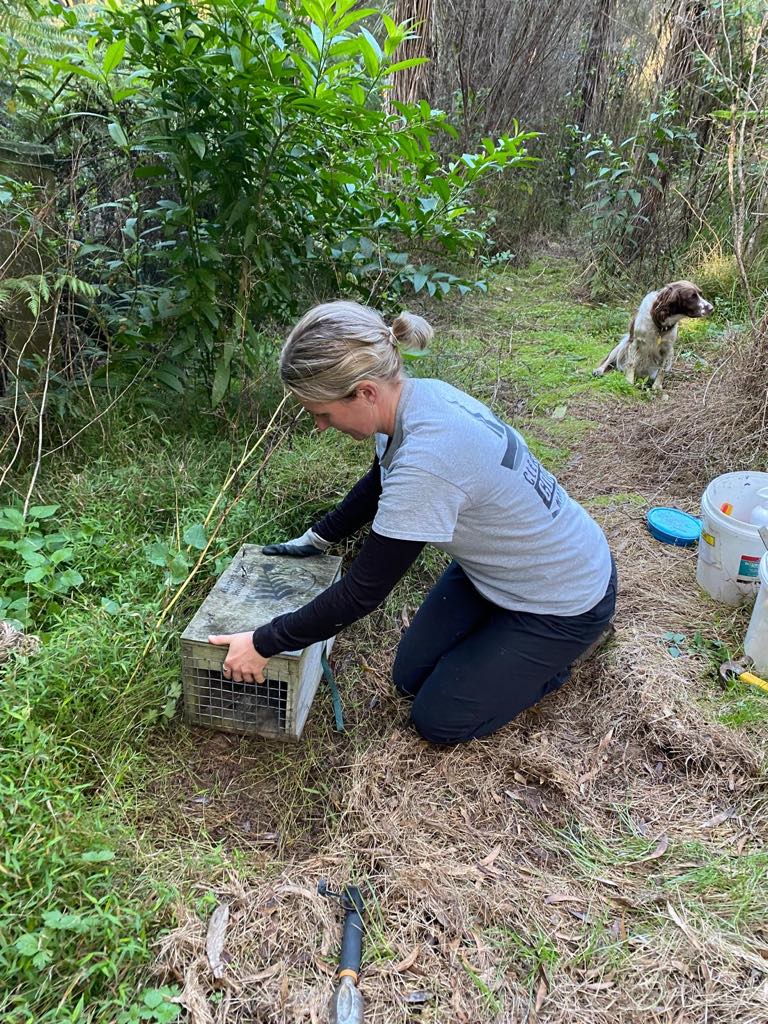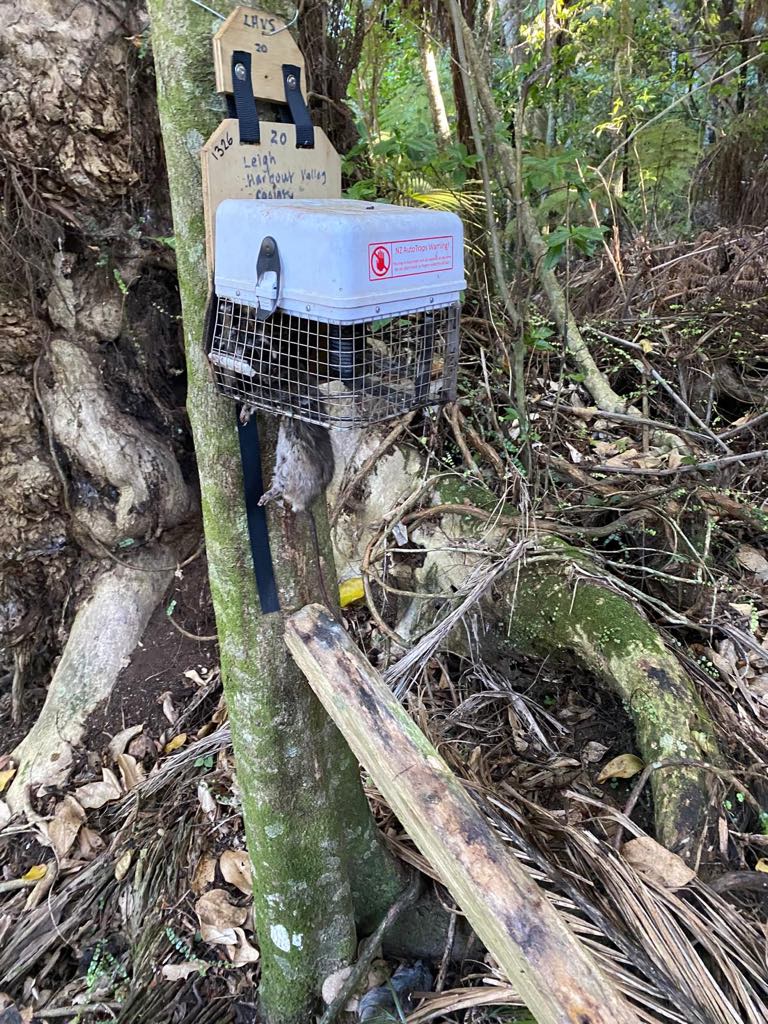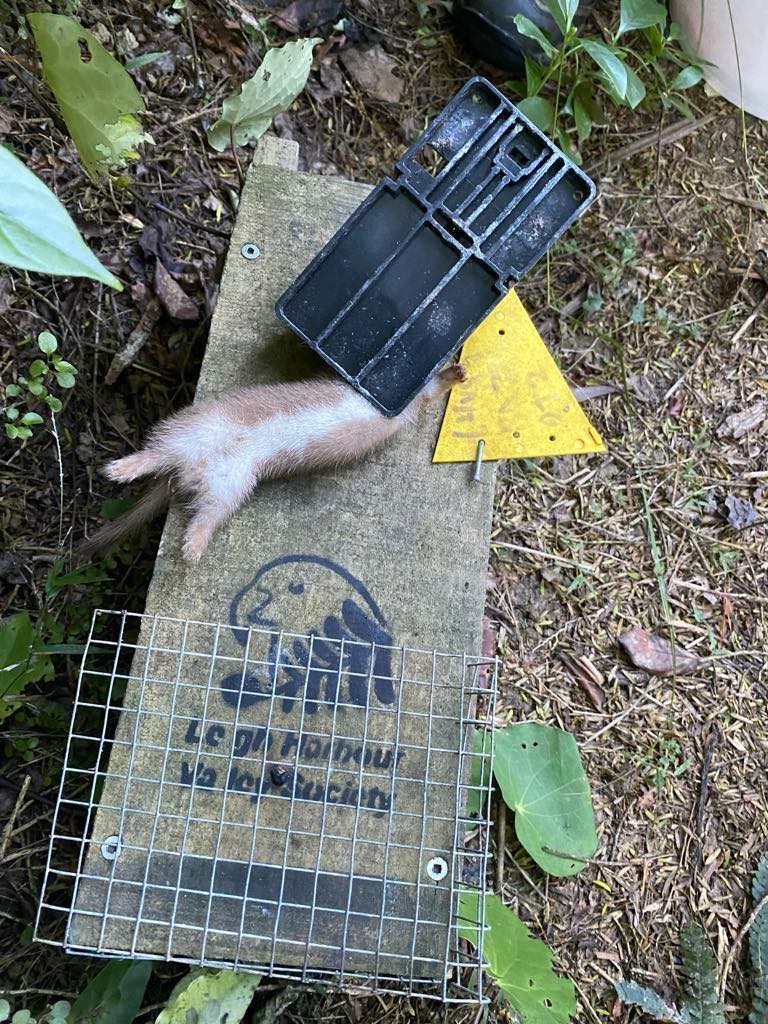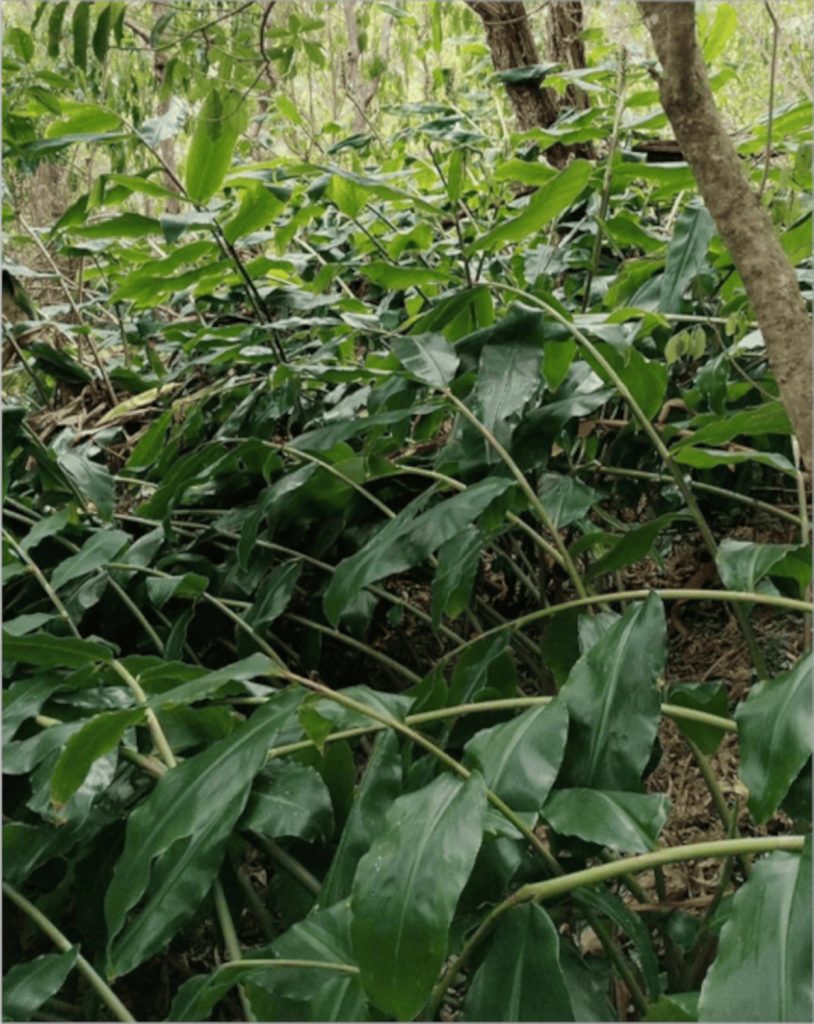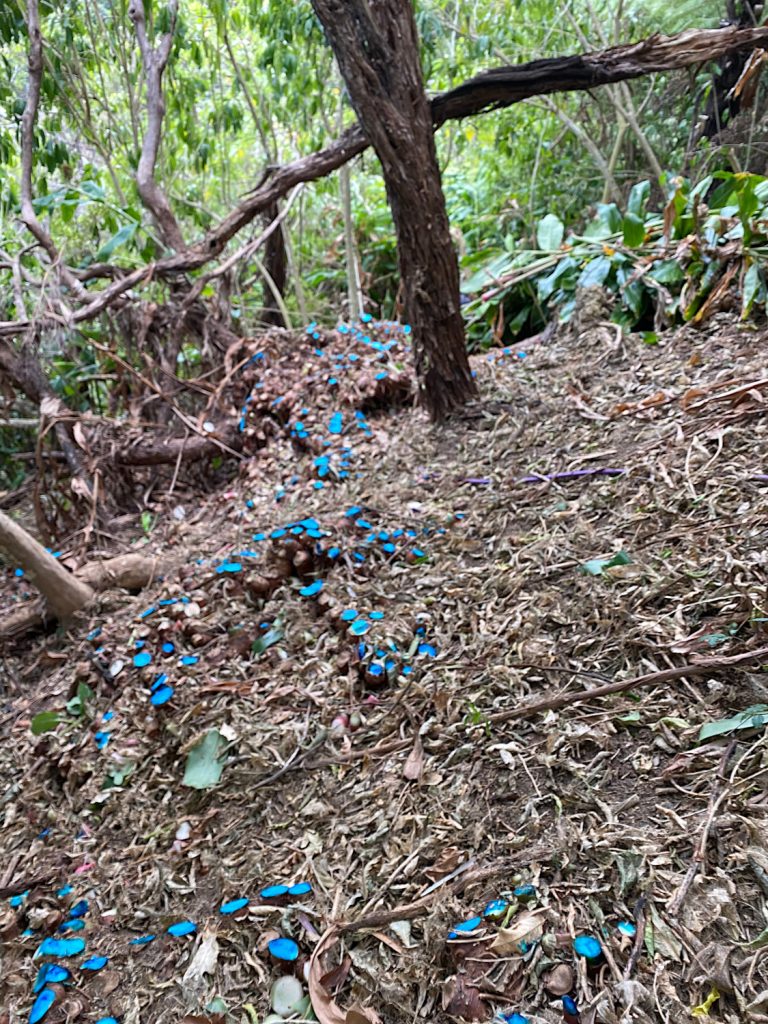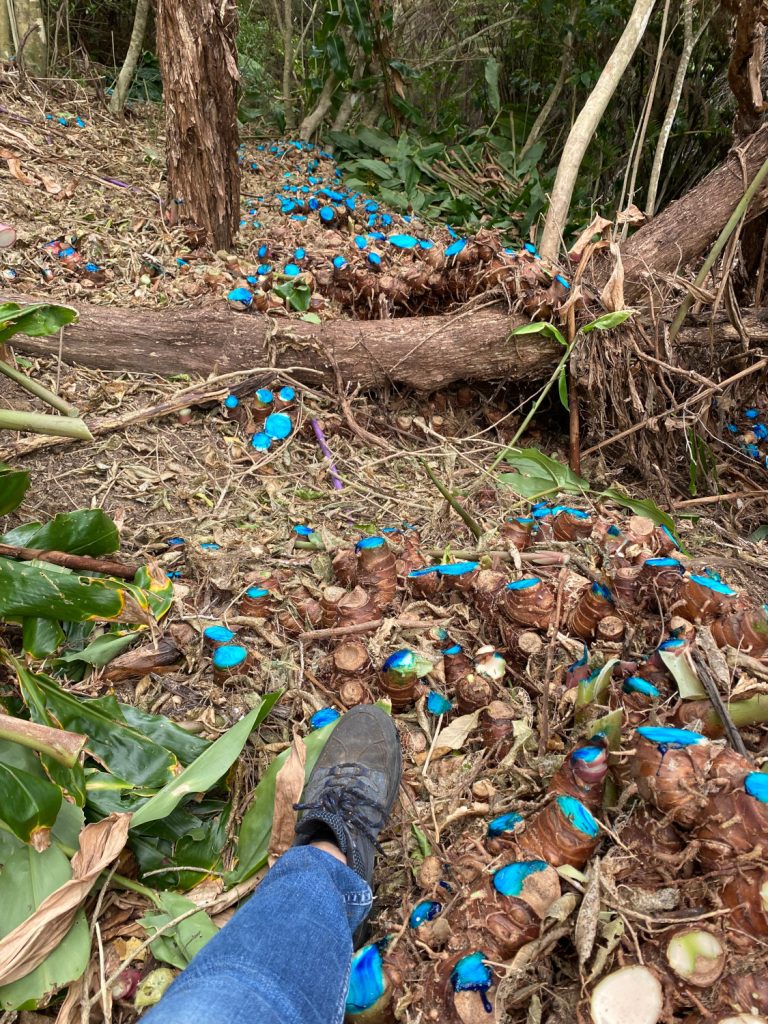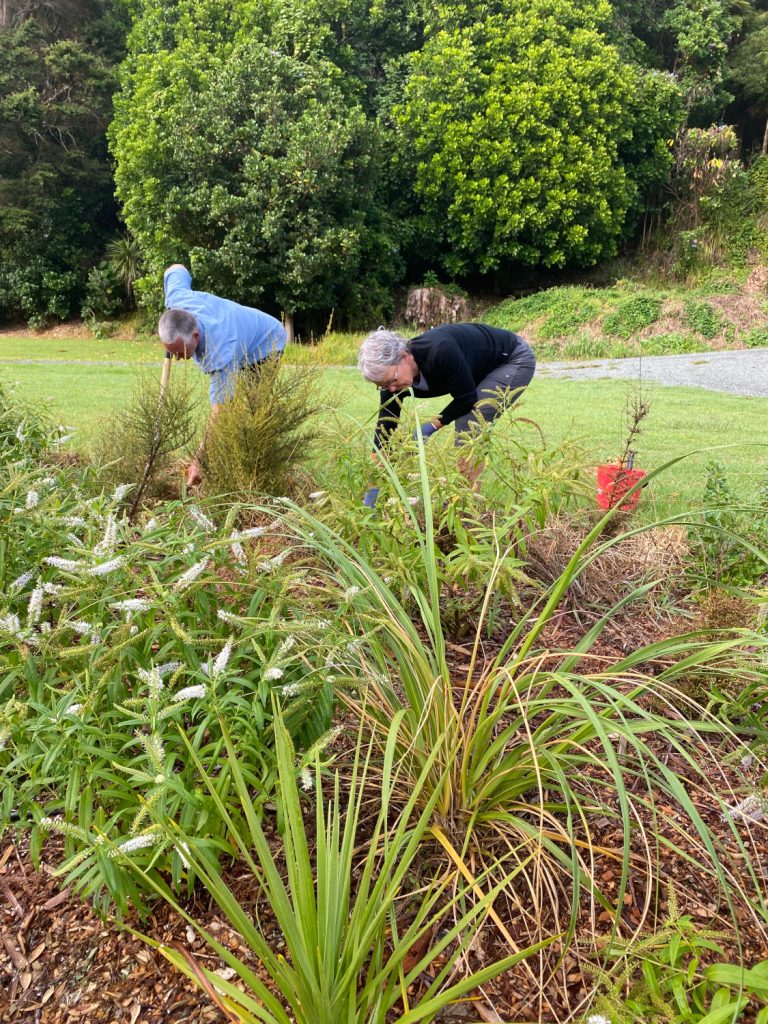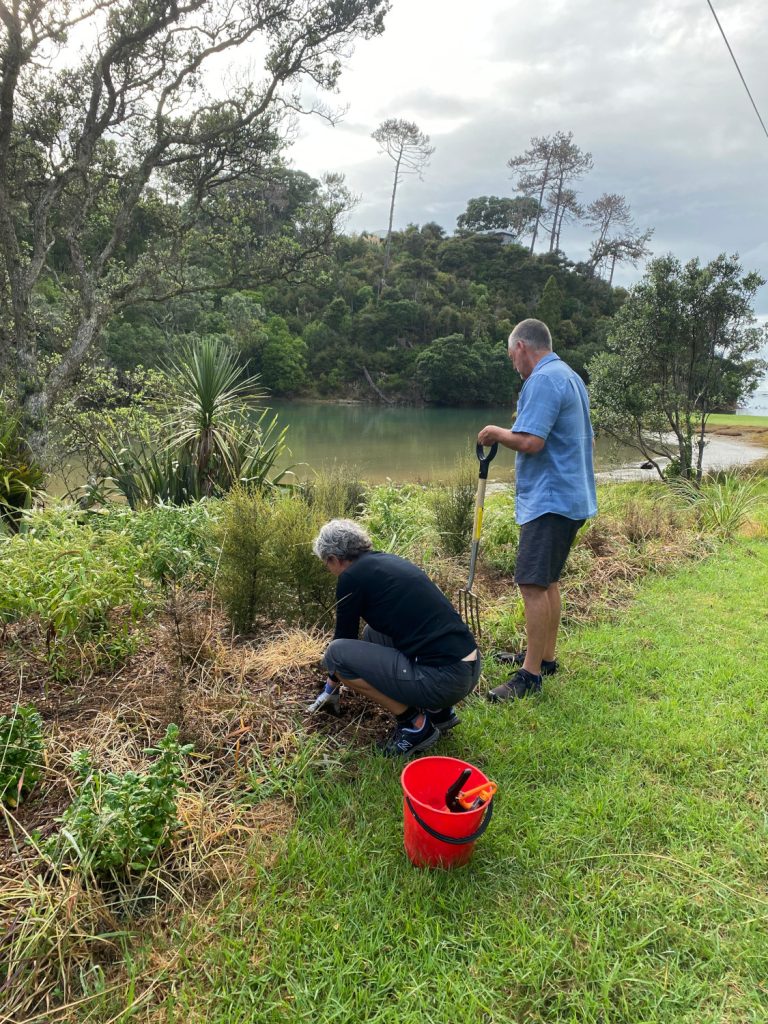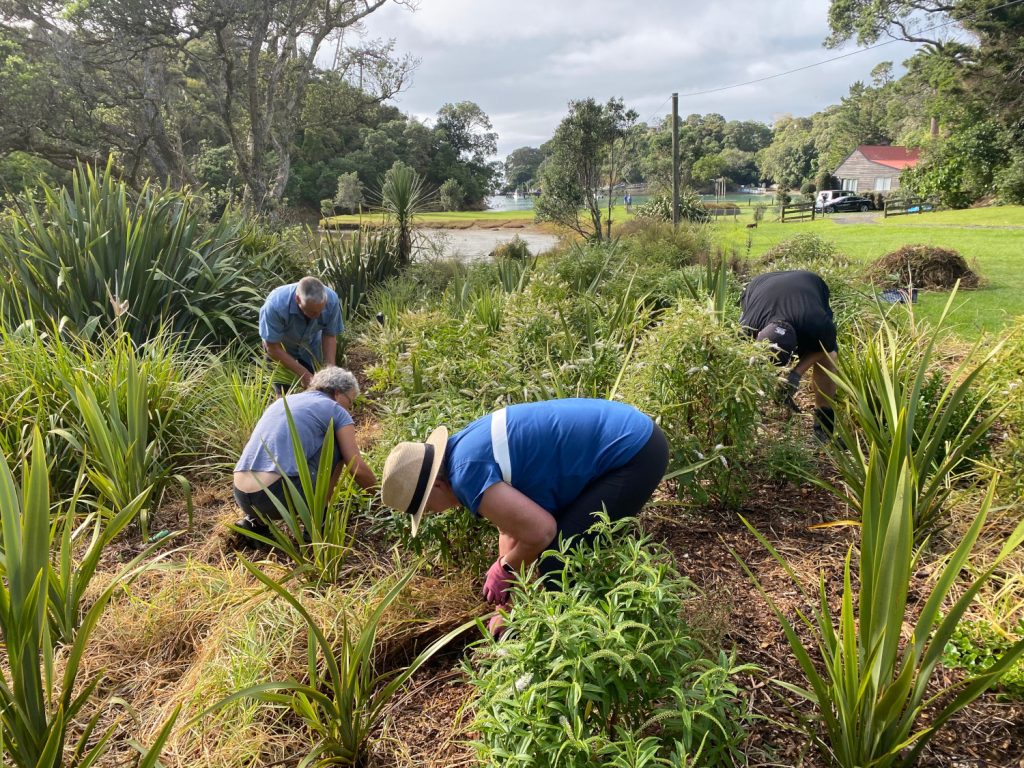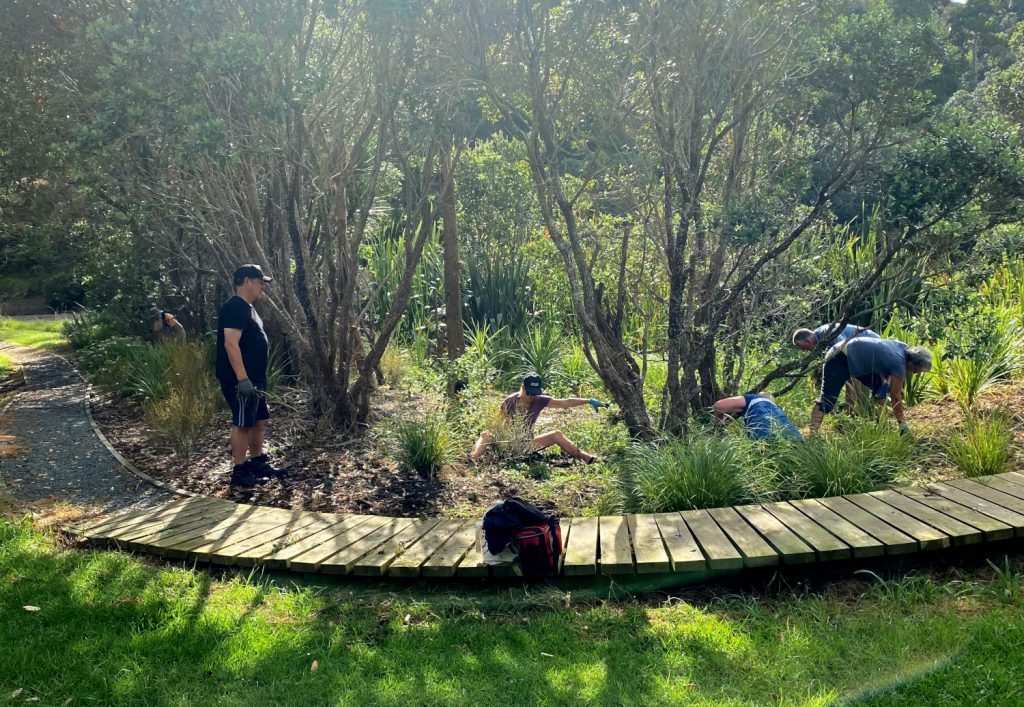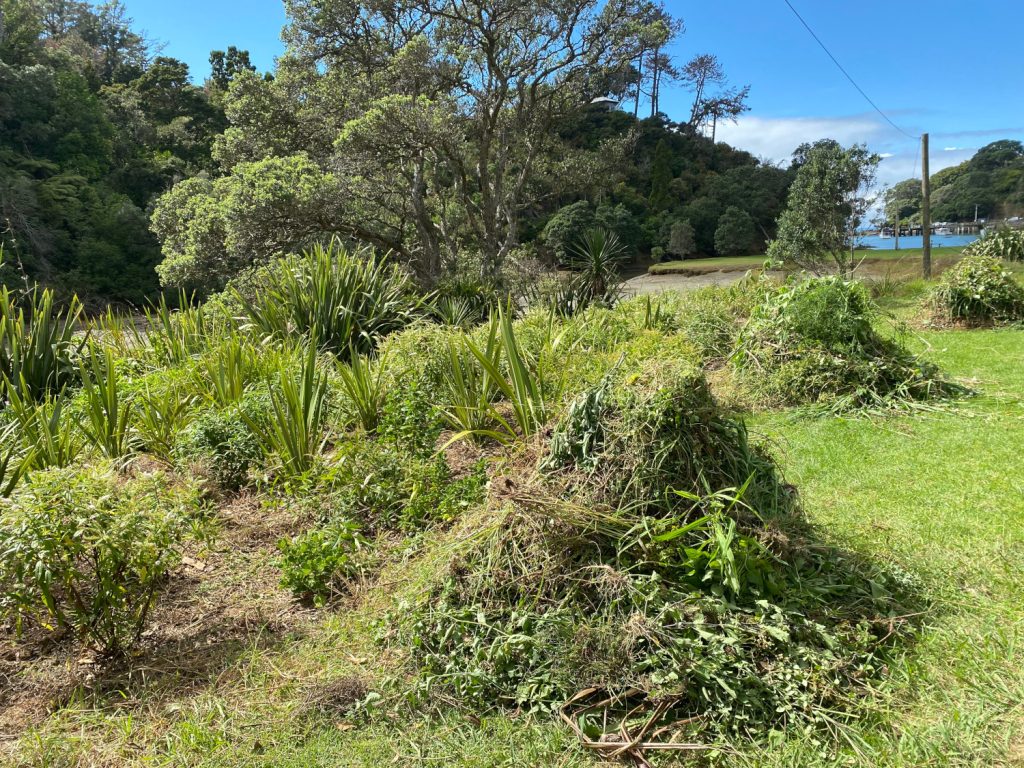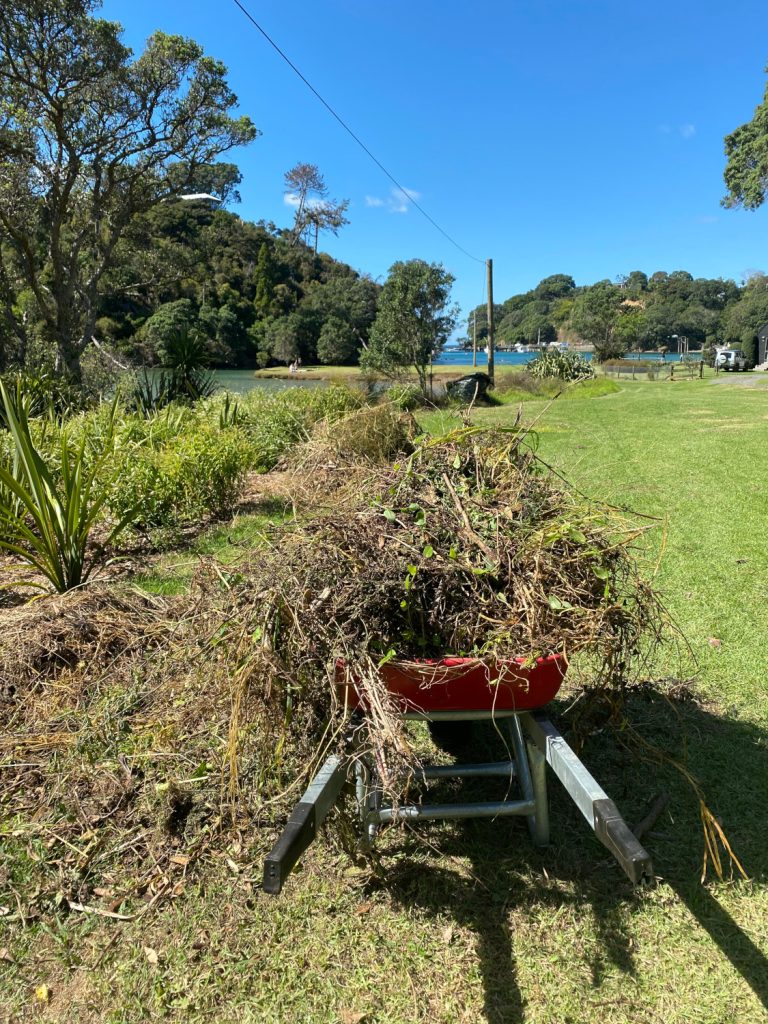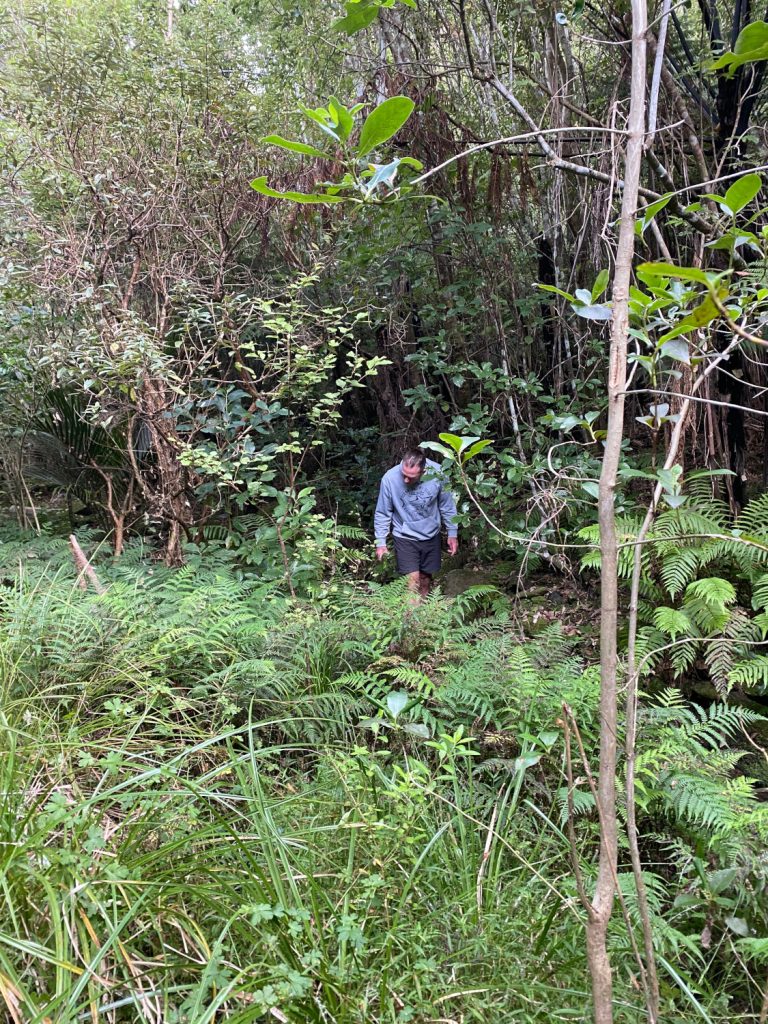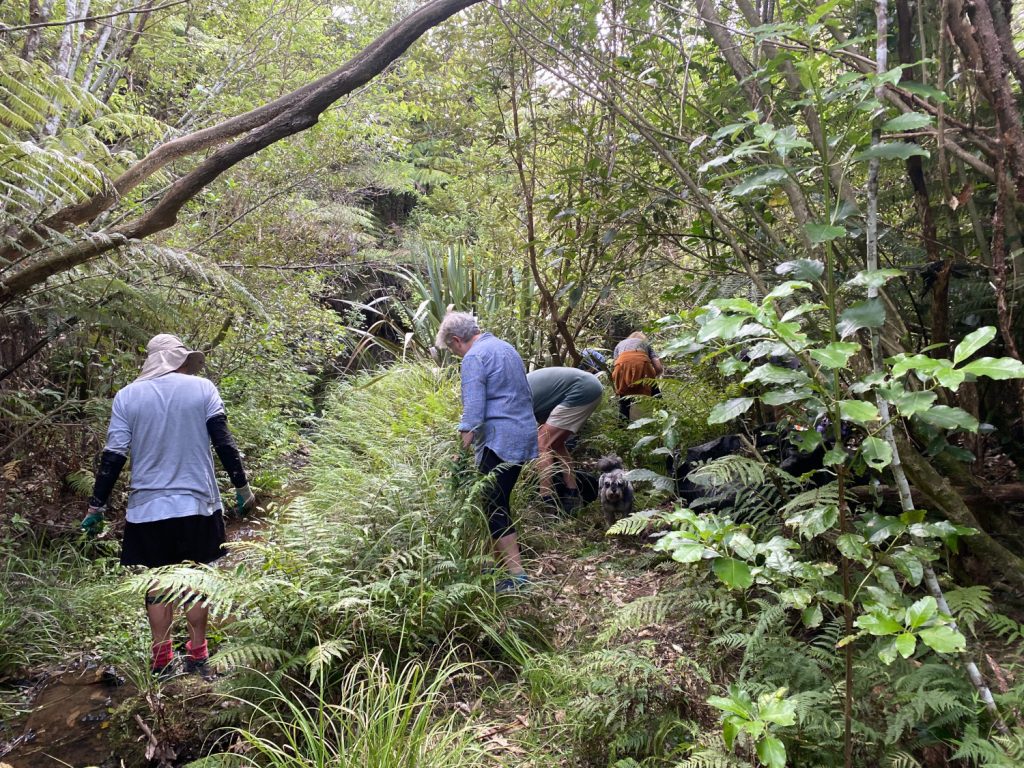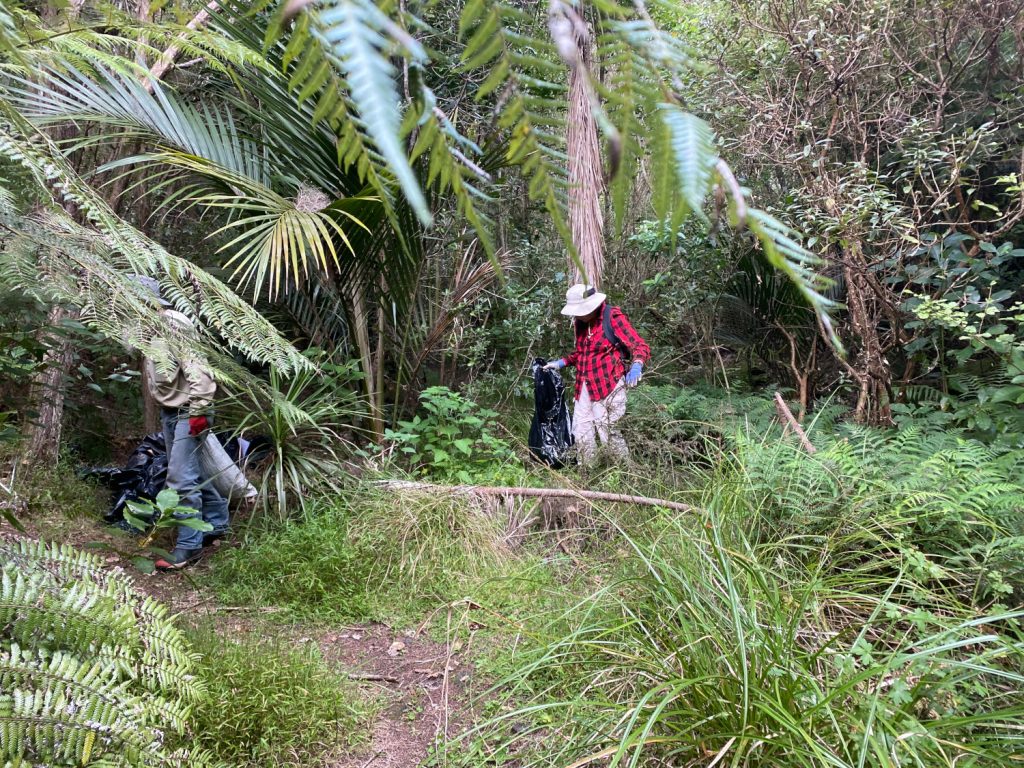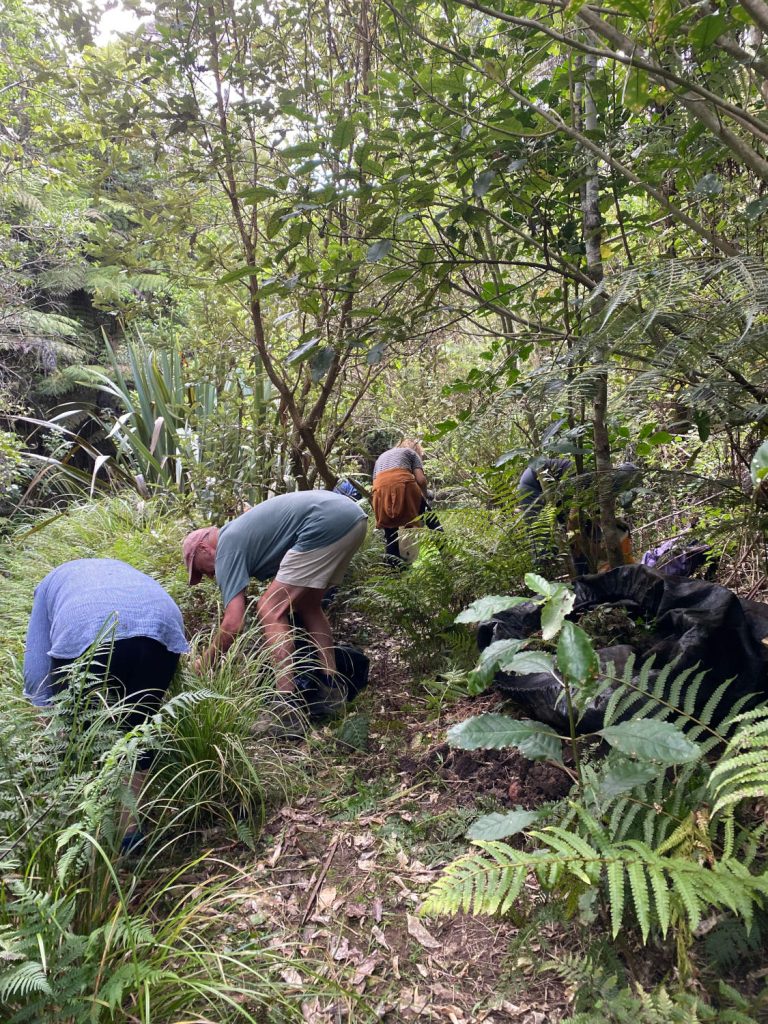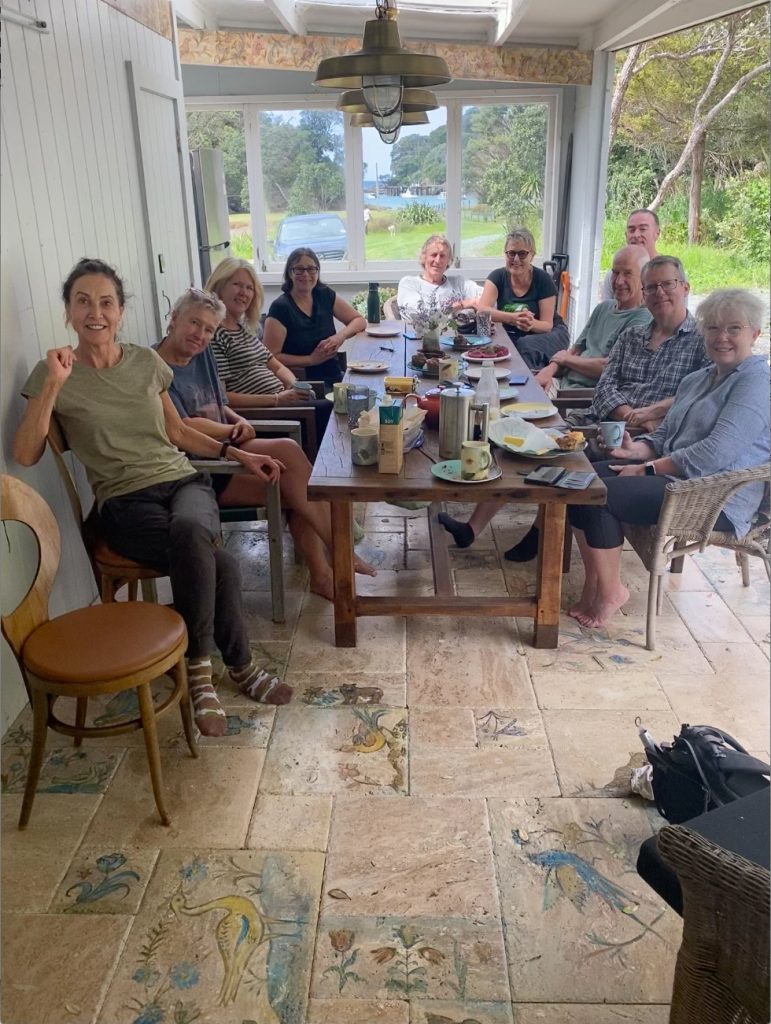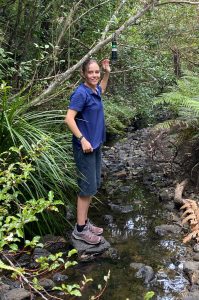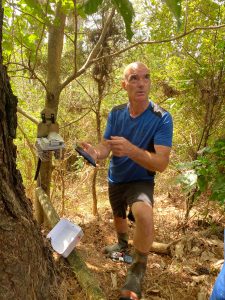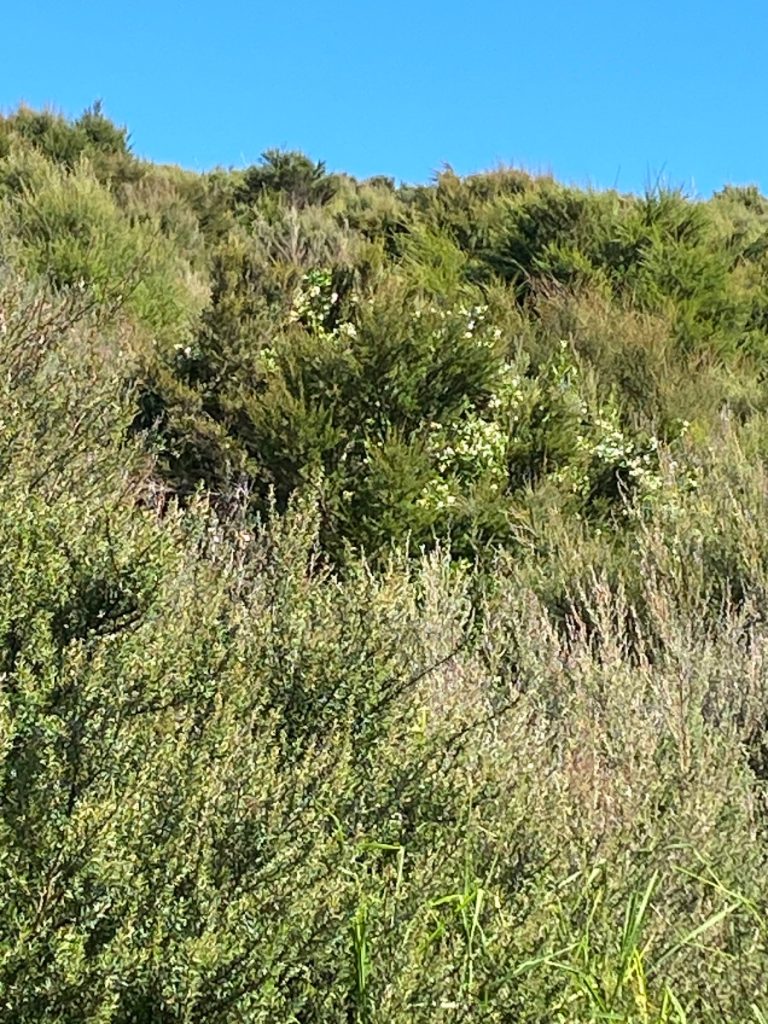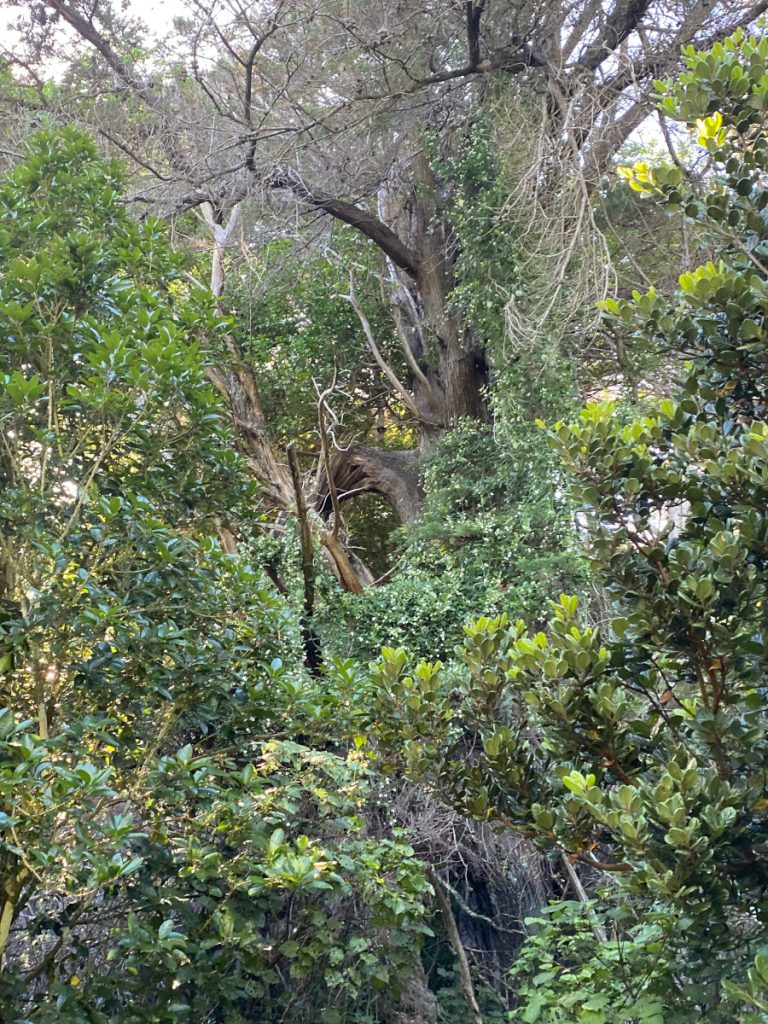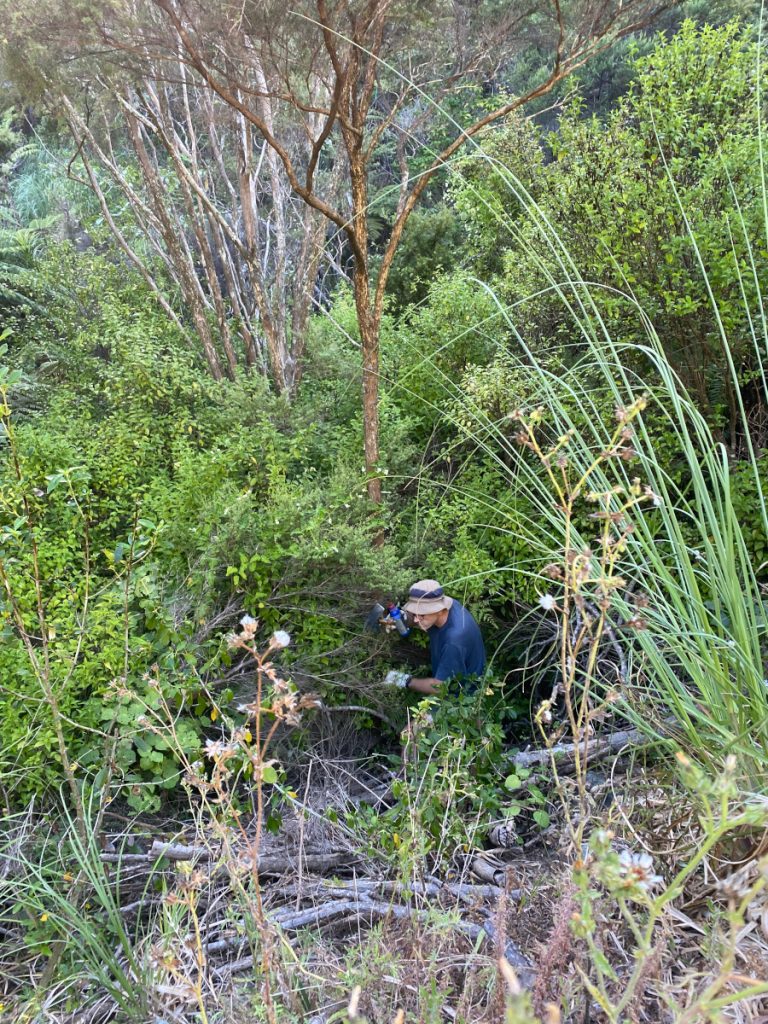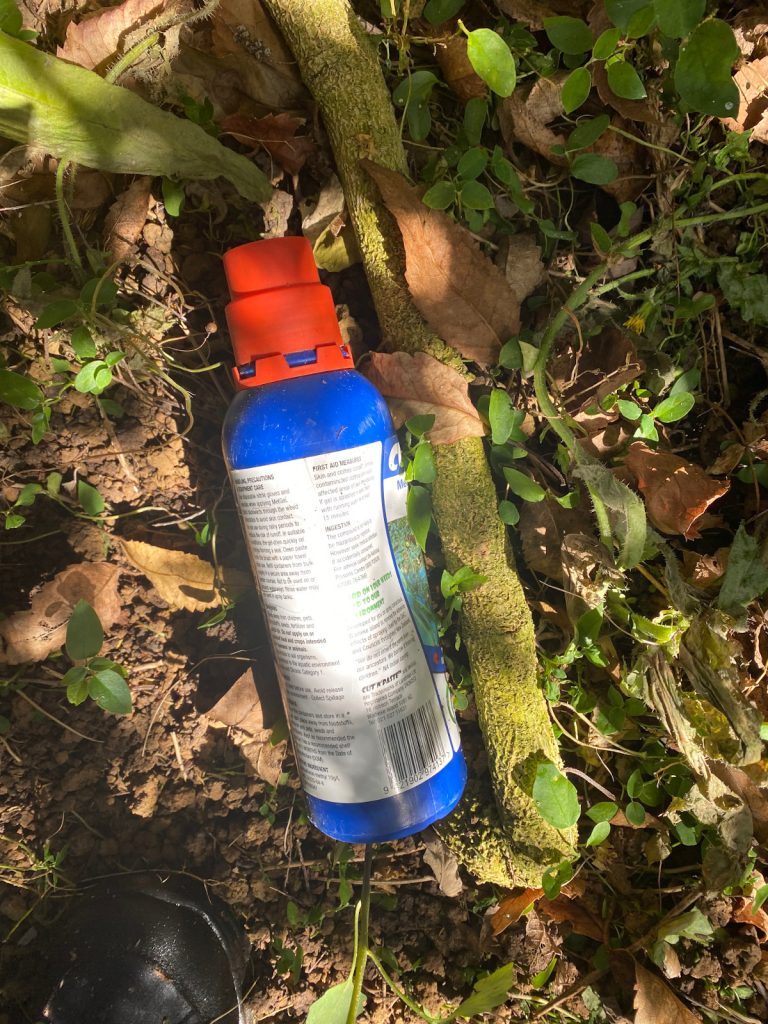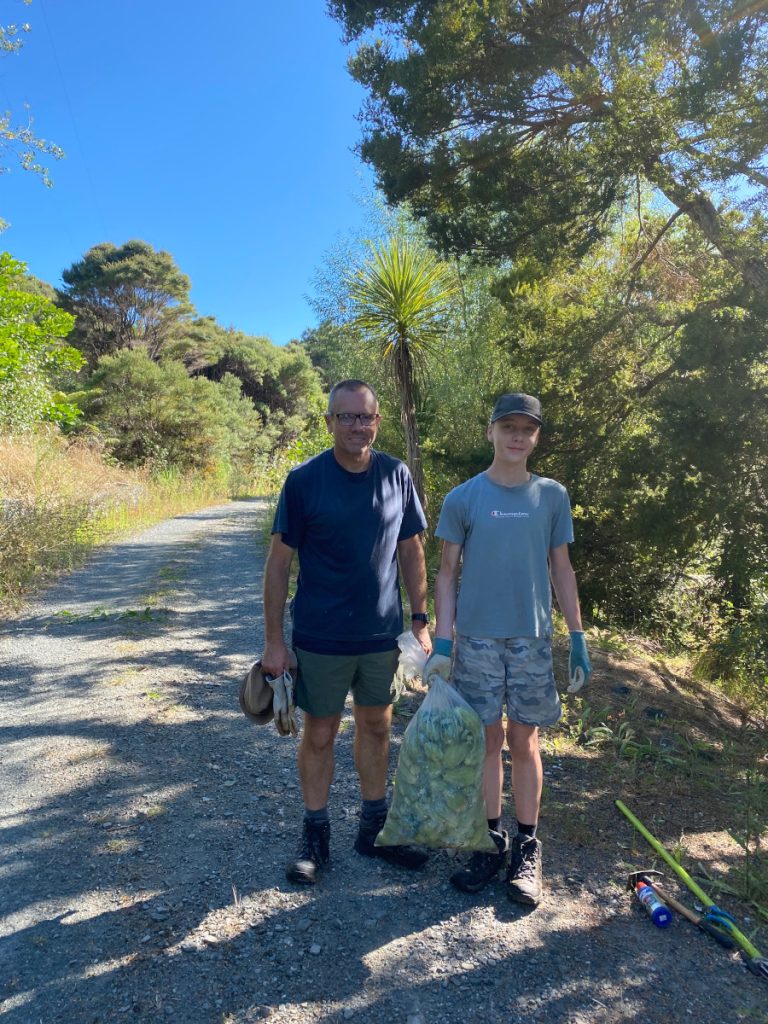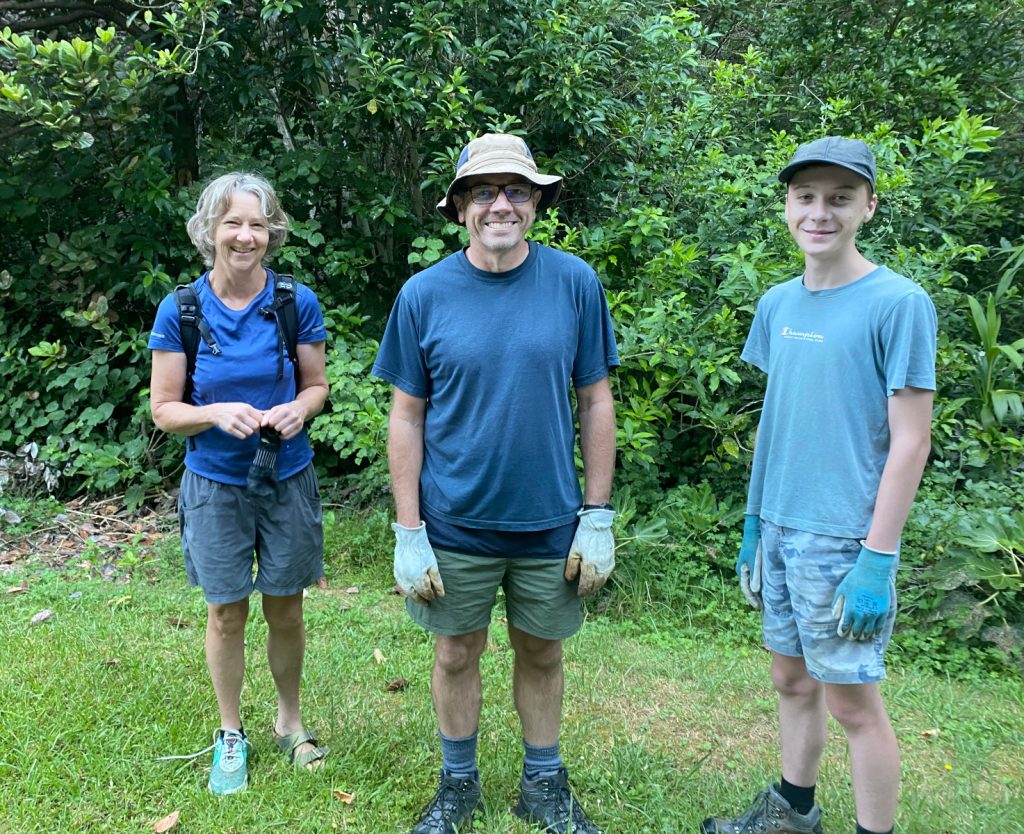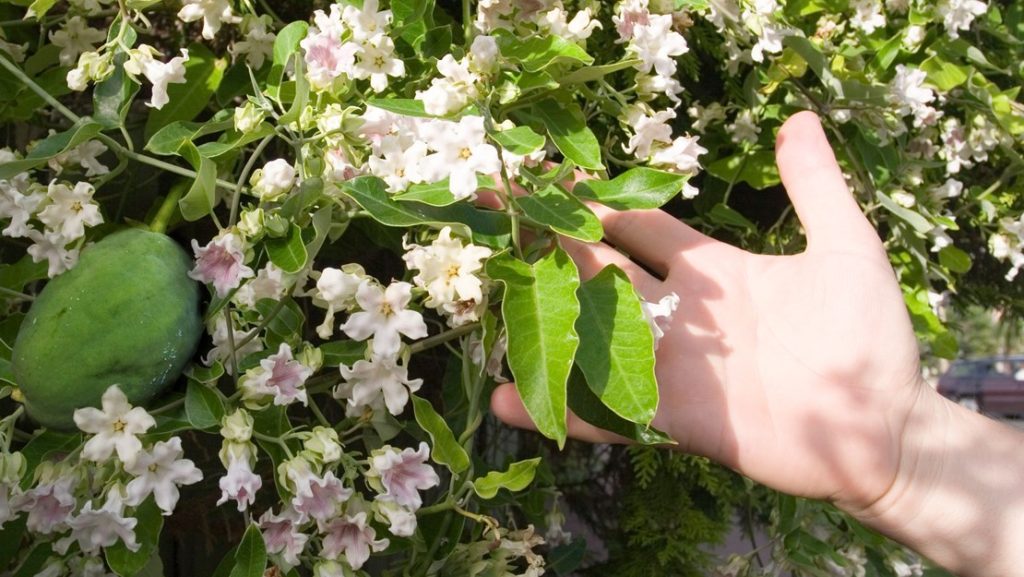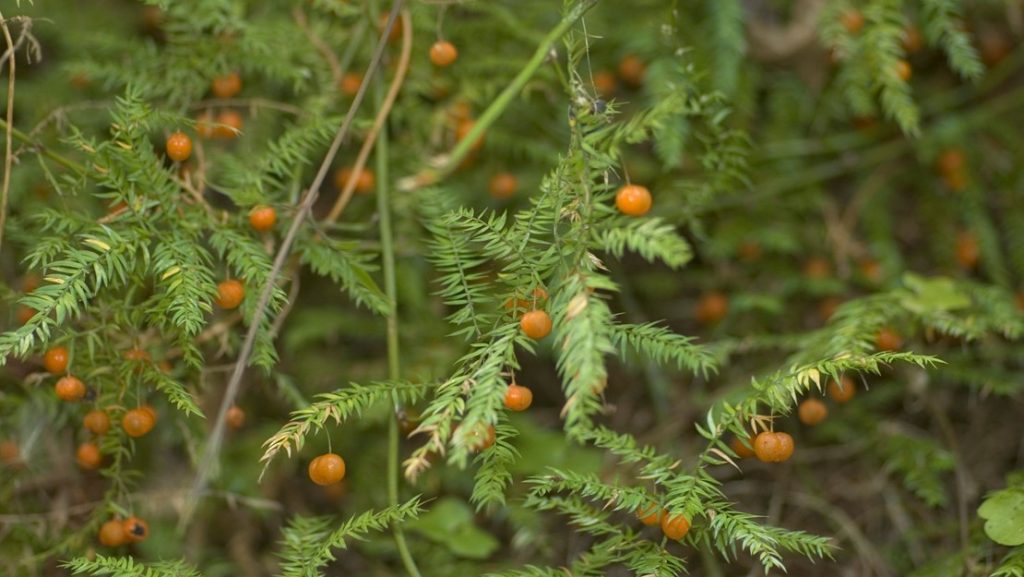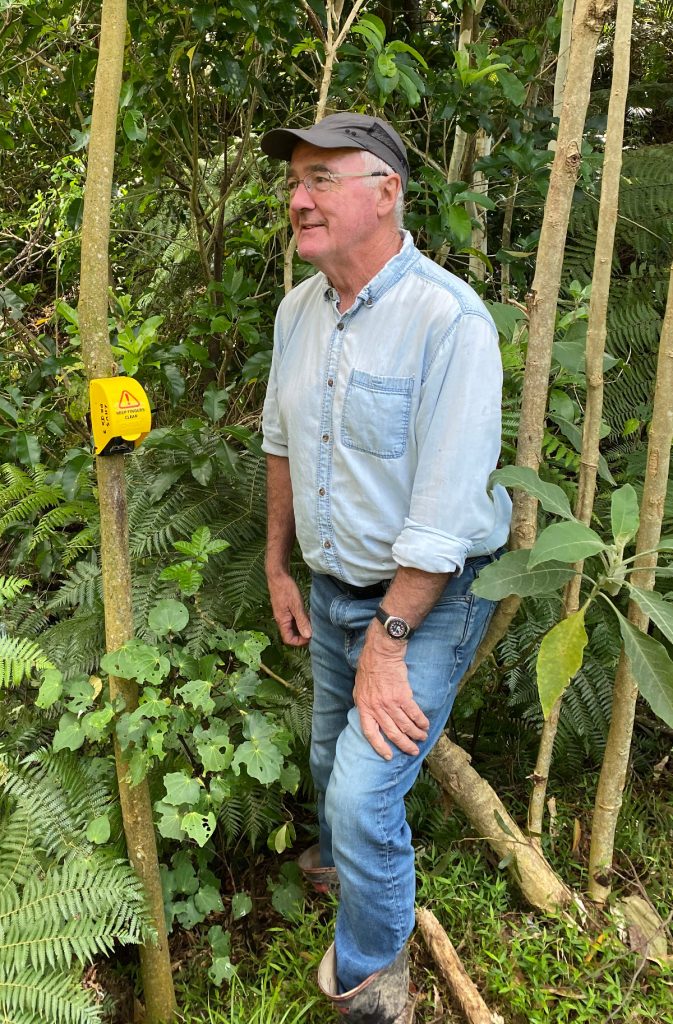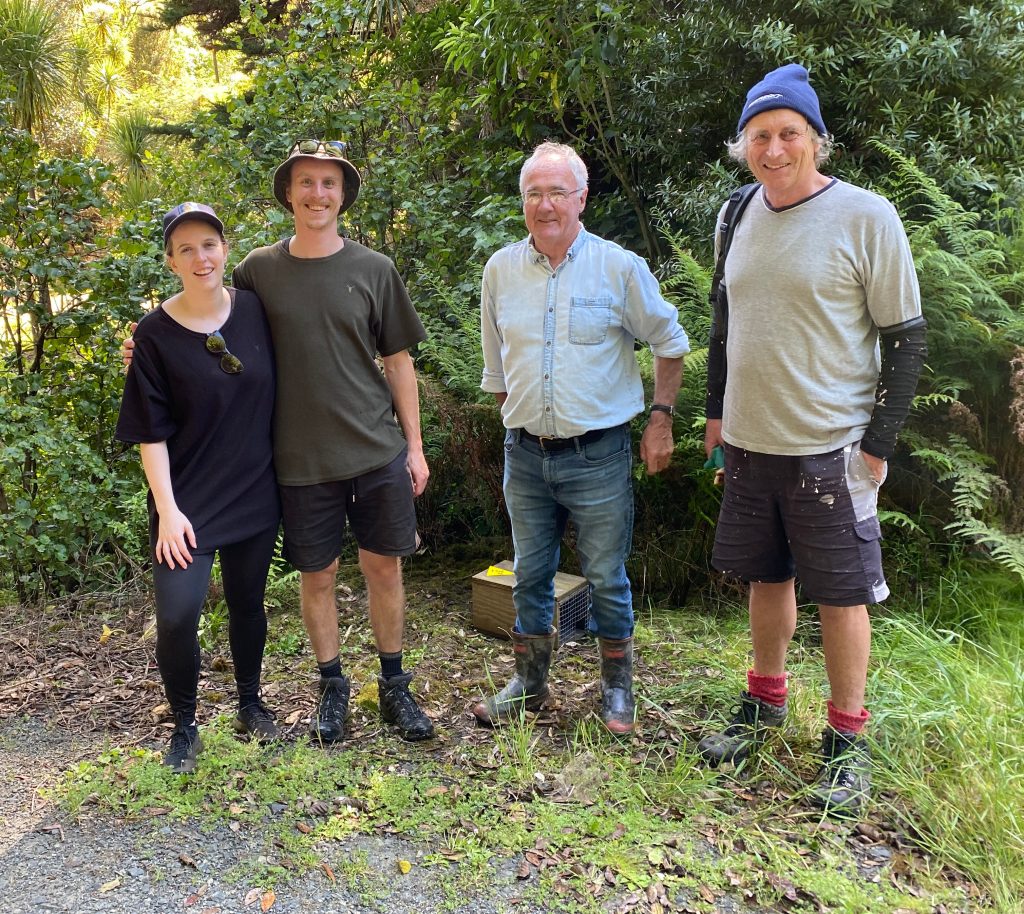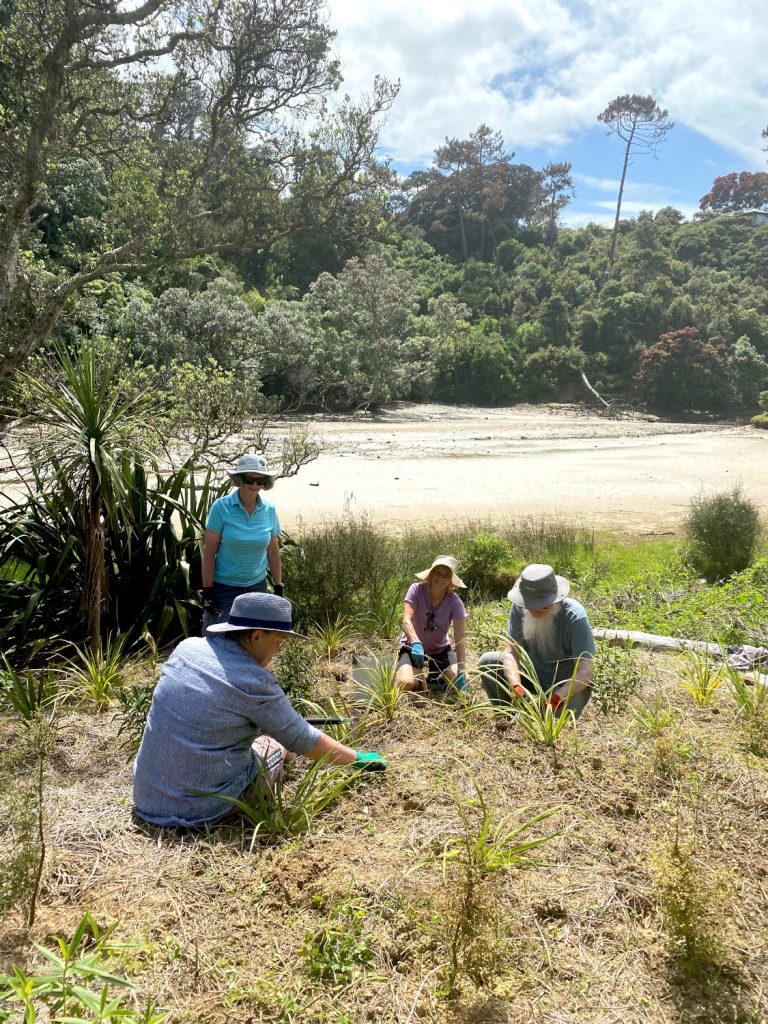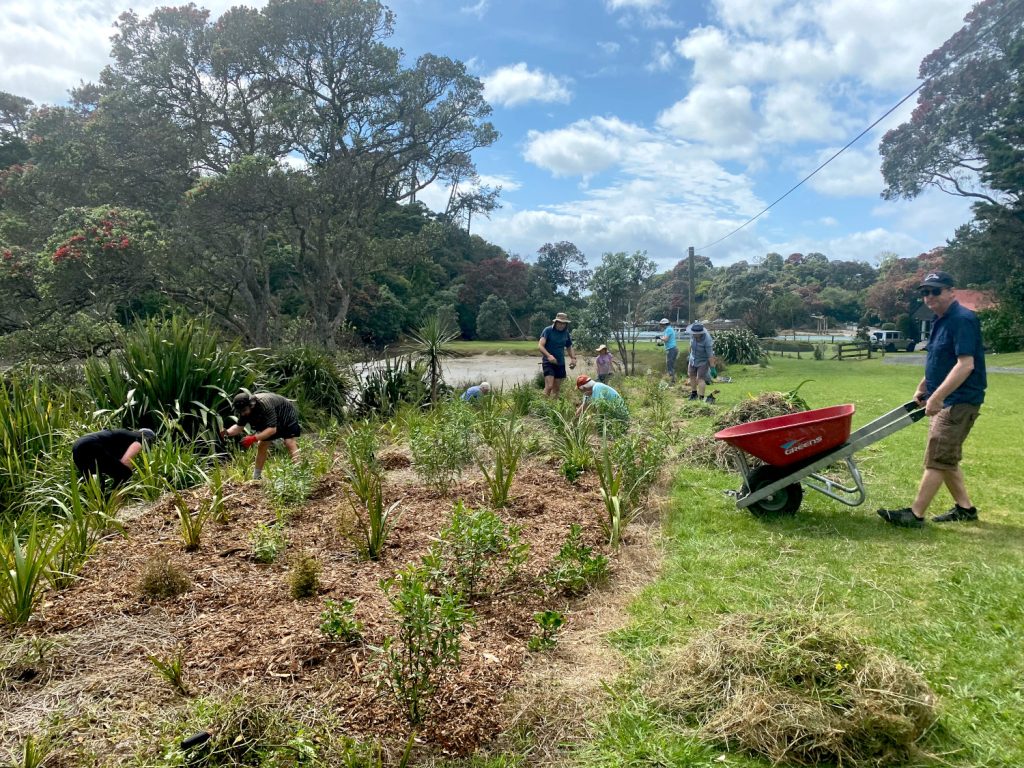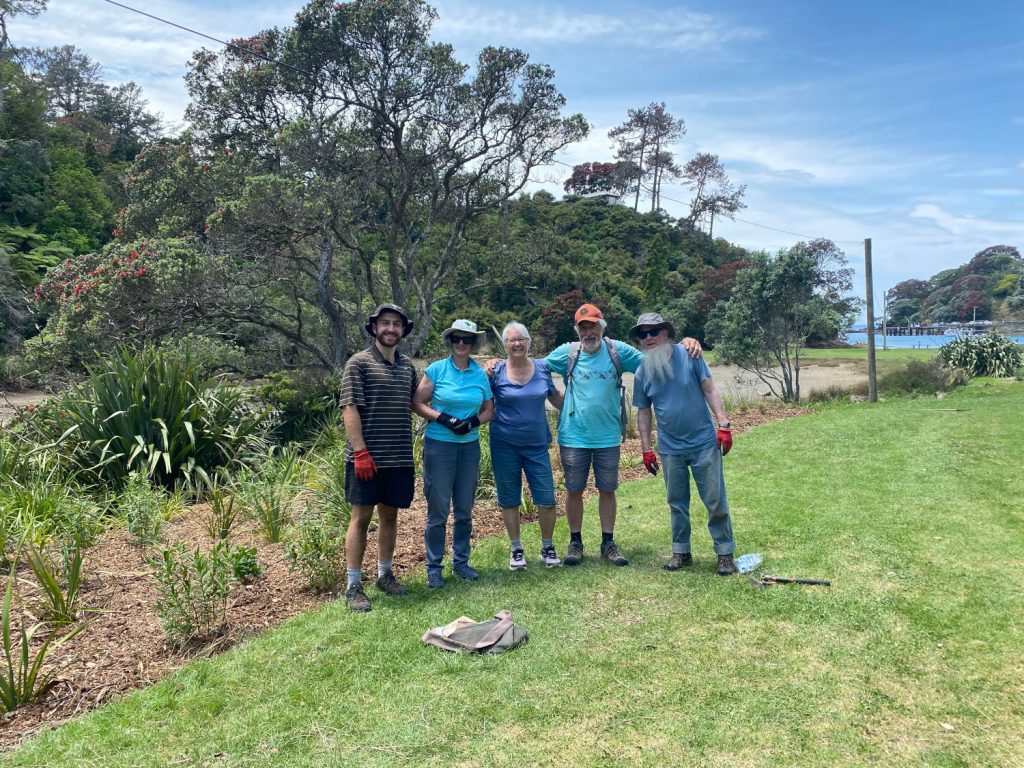The morning glory, tradescantia and jasmine were trembling in their roots as, in true pioneering fashion, a dozen or so Leigh locals descended on them armed with gloves, secateurs and rakes. There is an extraordinary satisfaction in reclaiming the forest floor and I felt I was in a real life version of Minecraft, attacking the enemy using real not virtual strength. There is also a degree of cunning in hunting down the famous jasmine nodule which Neil said must be found if we want true annihilation of this particular enemy which released its venomous perfume in a futile attempt to pretend it was a good guy. I have to admit nodule detection was not my forte and I fear many wounded Jasmine clumps might recover to climb again and they will all rise from my patch; as the other volunteers had an air of knowing what they were doing.
My enthusiasm however more than compensated. There is pure joy in pulling jasmine off a native tree that it is ruthlessly strangling to death and the tree sometimes springs back in joy at its release, if it‚Äôs not too far gone. There is the same sense of heroism in discovering little ferns quivering under the tradescantia. One group of us worked from the top of the road and one from the bottom of the garden and at one point we reached each other in a real “Doctor Livingstone I presume” moment.
We had pies for lunch as a reward for our sterling performance and there really was a marvellous camaraderie in sharing our battle stories. There were, I’m pleased to say, no injuries amongst the true and brave but at least 10 weed bags full of fallen villains.
